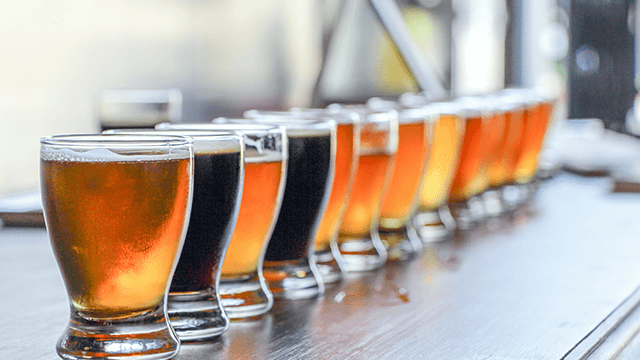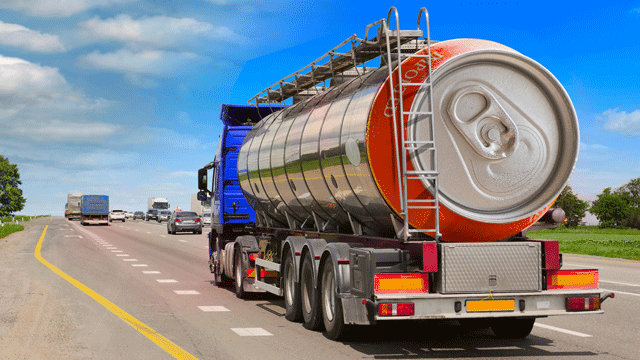Cut down costs and reduce the carbon footprint of your beer distribution network
Beer consumption worldwide is on the rise. Beer production is forecast to increase at a compound annual growth rate (CAGR) of 3.7% through 2025. But beer costs are going up while global crop yields, such as wheat and barley, are set to decline. That’s what the World Economic Forum reported in a June 2021 article. All due to extreme heat, drought and rising energy costs in the future.
DATE 2023-11-28Beer consumption worldwide is on the rise. Beer production is forecast to increase at a compound annual growth rate (CAGR) of 3.7% through 2025. But beer costs are going up while global crop yields, such as wheat and barley, are set to decline. That’s what the World Economic Forum reported in a June 2021 article. All due to extreme heat, drought and rising energy costs in the future.
Against this backdrop, breweries are grappling with how to move toward climate-neutral operations and boost their sustainability credentials. As a result, beer producers – major breweries and craft brewers alike – are taking steps to reduce the carbon footprint of their operations, making concentrated beer an attractive alternative to today’s traditional production methods.
Reduce the carbon footprint of your beer distribution network
What if you could shrink your brewery’s carbon footprint, cut costs and minimize supply chain headaches while ensuring the quality of your beer? You can, with the Alfa Laval RevosTM concentration system. Revos is a high-pressure, low-temperature reverse osmosis concentration system that removes water from beer and beverages yet retains the original flavour profile upon rehydration. Using patented and energy-efficient technology, Revos slashes supply chain costs.
Cut bulk transport costs
Revos delivers substantial savings for bulk transport and draft dispense applications. For instance, on the bulk transport side, transporting beer concentrate instead of standard high-gravity beer reduces the number of tanker journeys by about 65% (between $5–15 per hl). It also lowers the associated carbon emissions as well as labour and fuel costs. Savings vary depending on various factors, such as fuel costs on a given route. An optional add-on for dealcoholization and hard seltzer is available.
Cut draft dispense costs
On the draft dispense side, bars can save more than $20 per hl on keg transport, boosting their sustainability credentials right up to the point of consumption. The Alfa Laval Re-draft system, with its automated monitoring system, allows quality control of the dispensed beer or beverage.
Beer distributed as a concentrate in kegs, and mixed with filtered carbonated water at the bar, offers benefits for everyone:
- The brewery and the distributor cut transport costs by up to six times, enabling cost savings and/or price point increases along the supply chain
- The brewery also receives real-time data on pour quality (temperature, carbonation, ABV, flow rate) from the draft dispense system
- The bar enjoys reduced delivery frequency and minimal storage space requirements
- The customer enjoys a great-tasting draft beer with consistent product quality and a smaller carbon footprint
Great taste from concentrate
Revos beer, wine, and cider concentrate have passed rigorous testing through informal sensory comparisons, large-scale formal taste panels, and headspace analysis – using taste, aroma, and mouthfeel as the criteria. The sensory panel tests show minimal to no measurable differences between the control beverage (fresh beer) and the trial beverage (rehydrated beer).
Alfa Laval Revos end-to-end solutions
Alfa Laval can support customers in adopting beer concentrates with Revos systems throughout the supply chain. On the bulk transport and storage side, Alfa Laval offers liquid processing and packaging solutions while, on the draft dispense side, Alfa Laval offers pasteurization as well as the Re-draft system.
Try before you buy
Don’t take our word for it. Put the Alfa Laval Revos concentration system to the test. Send eight kegs of your beer or beverage to one of Alfa Laval’s two testing sites (either in the US or Denmark) and take part in an onsite tasting and performance review. Or rent and test a commercial-scale unit to determine concentrate throughput and quality at your site.


